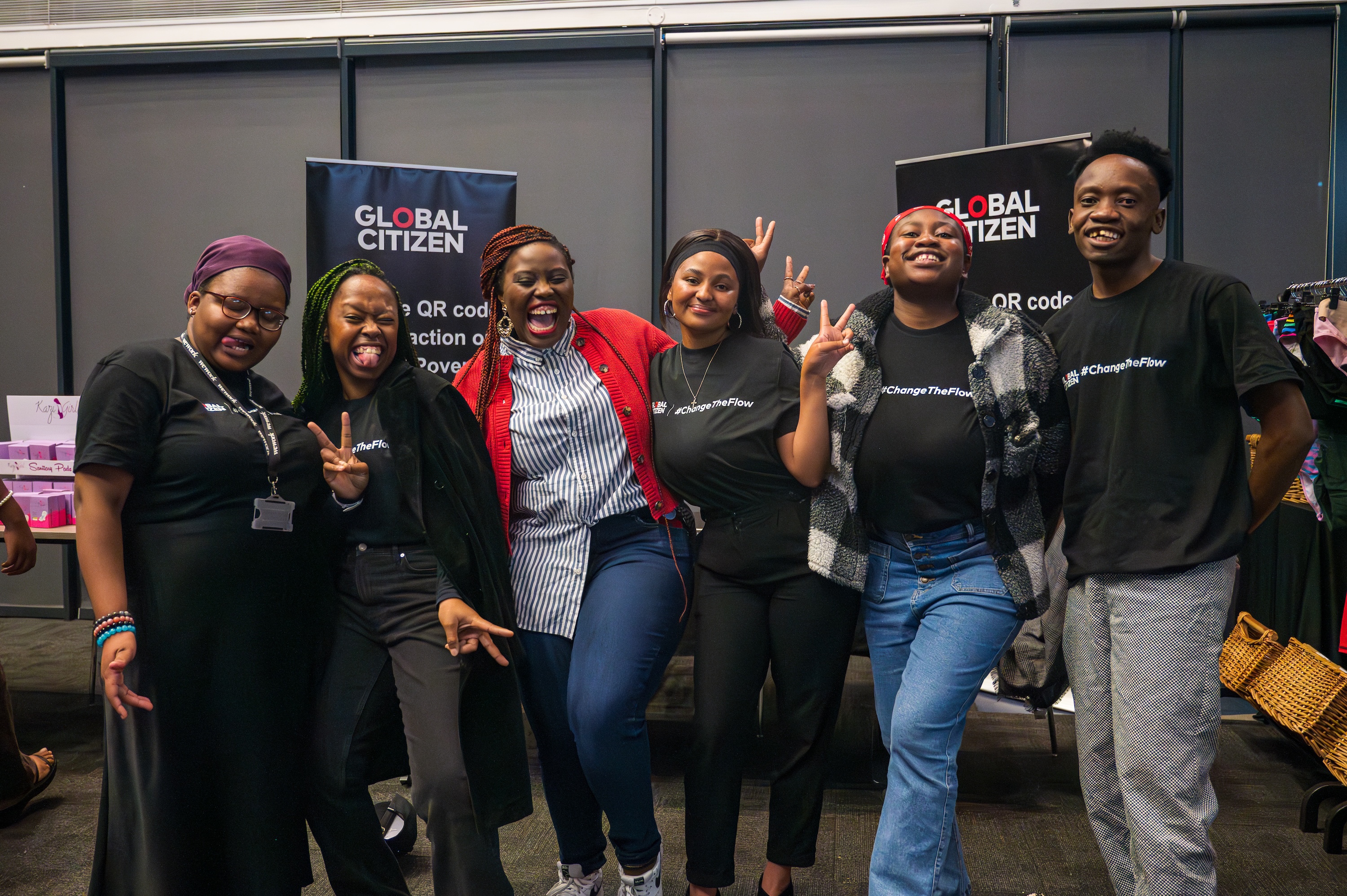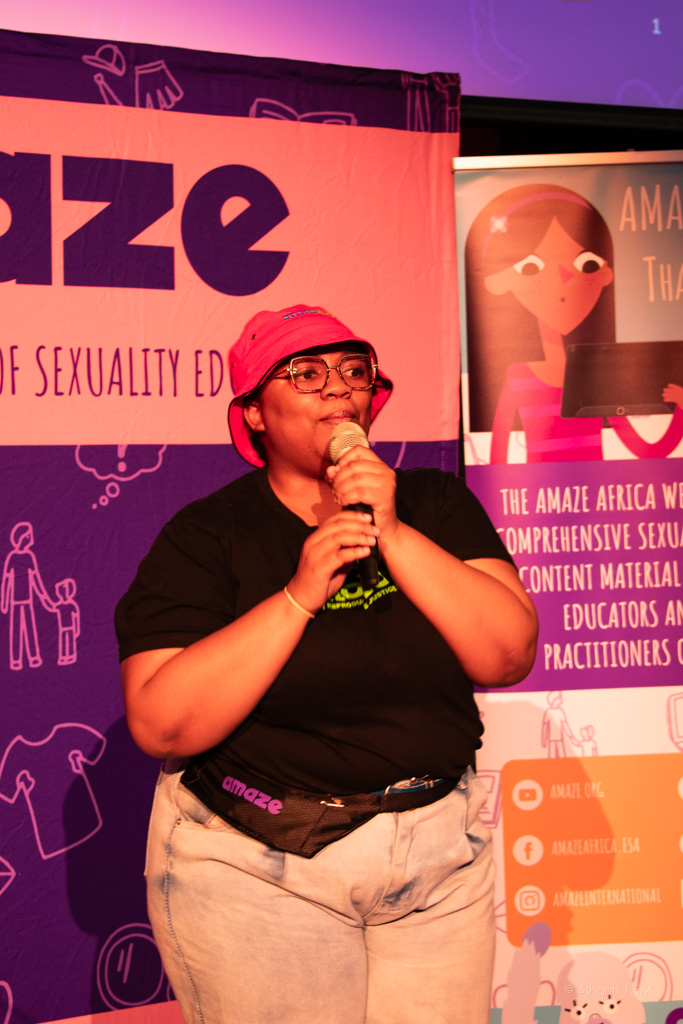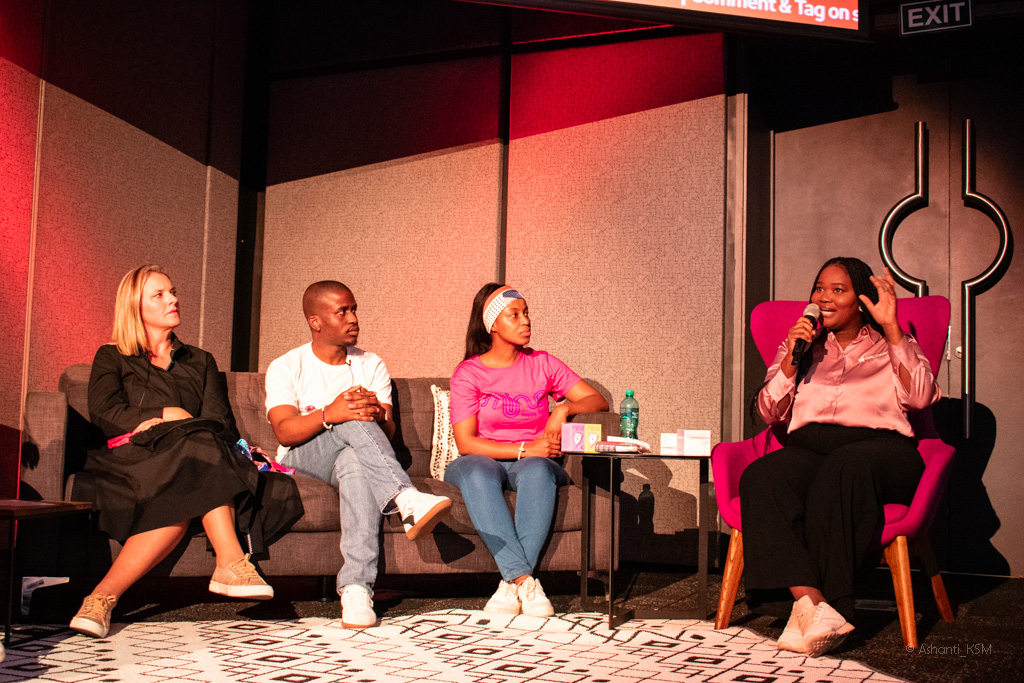by Candice Chirwa & Sesona Buyeye
May 28, 2024, marked 10 years of the UN’s Menstrual Hygiene Day. While progress has been made towards making sanitation and menstrual health resources accessible for all menstruators everywhere, more still needs to be done for the world to truly achieve equity.
South African-based menstrual equity activists and thought leaders, Candice Chirwa from the non-profit company Qrate and Sesona Buyeye from Ibis Reproductive Health, dive into what the next steps towards menstrual health equity should look like in the course of the next decade.
As we reflect on the progress made over the past 10 years in menstrual health advocacy, we must also consider where we are now and envision where we want to be in the next decade.
The Flow Forward Annual Lecture — the first of which took place on Menstrual Hygiene Day in 2024 and was hosted by Qrate and The Menstrual Project — catalyzes change by igniting crucial conversations and inspiring action towards menstrual equity. Looking ahead, we must focus on empowerment, equipment, education, and eradicating period poverty overall in order to truly flow forward and create a lasting impact within the South African context.
A decade ago, menstrual health was shrouded in stigma and silence. Conversations around menstruation were limited, and menstrual health management was not prioritized in policy agendas. While this stigma is slowly lifting, and the silence is being broken by menstruators, allies, and activists across the globe, equity in this space is yet to be reached, and barriers remain. Millions of girls and women in South Africa and around the world continue to face significant obstacles in managing their periods. Lack of access to affordable menstrual products, inadequate sanitation facilities, and deeply entrenched cultural taboos perpetuate menstrual inequity.
Flowing forward to the next ten years, the main goal is to achieve a #PeriodFriendlyWorld. This means incorporating initiatives to encourage a societal shift where menstruators can freely and comfortably discuss their periods. Part of that includes integrating menstrual health education into school curriculums and fostering a supportive environment for menstruators.
To achieve this period-friendly world, it is vital that every menstruator has access to affordable period products of their choice, which entails advocating for and supporting policies that provide free or subsidized menstrual products in schools and public facilities. Additionally, it’s essential to leverage the impact of the past ten years of menstrual advocacy efforts to initiate long-term, sustainable changes that address period poverty and encourage more people to join through existing advocacy efforts.
As we flow into the future, our vision for the next decade must be bold and inclusive. The pillars of our vision for the eradication of period poverty and creating a #PeriodFriendlyWorld should encompass the following 4 Es:
Empowerment
We envision a future where every girl, woman, and person who menstruates feels empowered to manage their menstrual health with dignity. Empowerment goes beyond providing products; it involves creating an environment where menstruation is normalized and celebrated. This includes engaging boys and men in conversations about menstrual health to break down stigma and gender stereotypes and support gender equality.
Equipment
Access to affordable and sustainable menstrual products for all menstruators, including those living below the poverty line as well as those with disabilities, is crucial. Innovations in menstrual products must continue, with a non-negotiable focus on eco-friendly and reusable options. Partnerships with local manufacturers and community-based organizations can ensure that these products are accessible to all, particularly those in underserved areas.
Education
Comprehensive menstrual health education is the cornerstone of our vision. Schools, communities, and healthcare providers must collaborate to provide accurate and age-appropriate information about menstruation, reproductive health, and hygiene practices.
Education should empower young adolescents with knowledge about their bodies, and equip them with the skills to manage their periods confidently. One of the existing solutions is the AMAZE Africa Youth Ambassadors, who have used AMAZE Africa video resources to conduct menstrual hygiene workshops.
During these workshops, the Youth Ambassadors disseminate information on menstrual hygiene management and raise awareness about menstruators' challenges, normalizing the process of menstruation. Additionally, these workshops, conducted in schools with learners between the ages of 14-18, have ensured the inclusivity of all young people, not just those who menstruate.
Through this example, we want to encourage people to use AMAZE Africa resources, which are available to everyone, to conduct their own menstrual hygiene workshops to raise awareness about menstrual hygiene management and the challenges menstruators face.
Eradication of Period Poverty
Period poverty is not just about access to products; it is intertwined with broader issues of poverty, inequality, and social justice. To eradicate period poverty, we must address the systemic and structural barriers that perpetuate it. This includes improving sanitation infrastructure, advocating for policy changes, and ensuring that menstrual health is integrated into broader health and social development agendas.
The next ten years of menstrual hygiene should build on these foundations. We must take advantage of the progress made so far to create a world where menstruation is normalized, and everyone has access to resources and support needed to manage their menstrual health with dignity and confidence.
Doing The Work
Qrate continues to work with various partners and is part of the South African Coalition for Menstrual Health Management, which is composed of various organizations such as Ibis Reproductive Health, South Africa’s Department of Social Development, and the Department of Women, Youth, and People with Disabilities. Through this coalition, we aim to use existing resources and information to raise awareness about menstrual hygiene among young adolescents. Additionally, we work with the Department of Basic Education to incorporate AMAZE Africa's comprehensive sexuality education resources into the existing Life Orientation curriculum.
The next ten years offer an opportunity to redefine menstrual health advocacy and ensure that no girl, woman, or menstruator is left behind. We can create a world where menstrual health is prioritized, and every individual can manage their periods with dignity and confidence.
Flow Forward is committed to leading this charge, and together, we can pave the way for a brighter, more equitable future.
More About The Authors
- Candice Chirwa is an author, gender activist, and thought leader. Better known as the Minister of Menstruation, her activism is based on the belief that women and girls deserve fundamental human rights. She is also the Founder and Director of the award-winning NGO Qrate, Which is focused on eradicating period poverty through menstrual education.
- Sesona Buyeye is a Communications Assistant at the Africa Region office of Ibis Reproductive Health. Leveraging her expertise in communication management, backed by a diverse background in development, strategic, and integrated communication, she actively supports Ibis's projects aimed at advancing access to Sexual and Reproductive Health and Rights (SRHR) and Comprehensive Sexual Education (CSE).
- About Amaze Africa: AMAZE creates age-appropriate animated videos for adolescents ages 10 to 14 and offers their parents and educators trusted resources to open lines of communication about important sexual health topics—in a fun, engaging format they will want to share with their peers.
- Qrate is a non-profit company focused on enhancing the critical thinking skills essential for young people through the promotion of ‘Eduliftment’ as a tool to help young people apply critical thinking skills to understand their circumstances and explore options open to them through educational content. Qrate focuses on ensuring that young people are equipped with a platform that provides knowledge to help shape their understanding of society.


